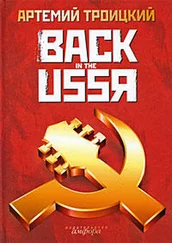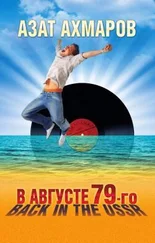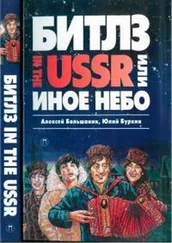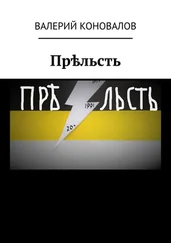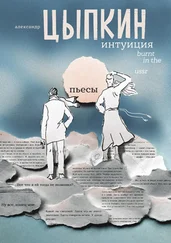Oleg and I approach the old man one day. “Look here, Grandad,” says Oleg, “it’s a pity to sit here all day doing nothing. If you cut this tarpaulin into strips and sew them together you’ll be able to make a balloon. We’ll bring you some rope; you’ll tie your balloon to your chair, and then you’ll be able to float out of here. If you leave on a moonless night no one will see you. We won’t say anything. It’ll be a secret between the three of us.”
The old man is excited by the plan and for a whole month he busily sews together pieces of tarpaulin. He is eventually caught, but by this time he has taken to sewing. One day he turns up on evening parade in a marshal’s uniform, sewn from tarpaulin bleached white by the sun, and covered in stripes and tin medals made from old fish cans. We cheer as he smartly salutes the camp guards.
It is hard to get used to the camp regime, with endless searches and body counts. For hours we have to stand like sheep in the rain or snow. The semi-literate guards line us up in fives; even so, they usually lose count and have to start again.
Those who want to get out of work cut their wrists or nail their scrotums to their bunks. A man in our cell slashes his wrists with a piece of smuggled razor. I want to call the guards. Oleg just shrugs and says: “Don’t be in a hurry; there’s not much threat of death when the world looks on.”
And it is true; no one dies of a few slashes across their wrists. They do it for show, out of hysteria.
A prisoner named Kuptsev is an exception. He’s always hiding somewhere in the basement or under the roof, slitting his wrists and waiting for someone to find him. He never seeks help himself. When I ask him why he does it he replies: “The sensation of blood draining out of my body is like nothing else in the world.”
Another man rips his stomach open. He stands smiling at the guards, with his dripping guts cupped in his hands. Stories of people who cut themselves up are usually told with a grin but they’re not funny. Everyone responds to cruelty and injustice in their own way.
In camp I find the lack of solitude even harder to bear than the loss of freedom. You’re always in a crowd. This is not so bad when you’re working during the daytime, but at night you sleep among hundreds of men whose faces you got tired of a long while ago. You start to hate your fellow inmates and they you.
At first I am surprised to see zeks turn on warders for no apparent reason, insulting them and getting punished for it. Then I start to do the same thing myself, just to gain some solitude in the isolator.
In the evenings we exercise by shuffling around a small square. By unspoken agreement the walkers do not disturb each other. If you pace up and down for long enough you start to feel almost light-headed and detached from your surroundings. For a minute or two you can forget you are in a camp. Returning from one of these evening shuffles a tall Jew named Yura Kots approaches me and remarks casually: “Wine drinkers smell different in the morning.”
“So they do,” I reply, “but what makes you say so?”
“This is going to be the first sentence of the novel that I’ll write when I get out of here.”
“D’you know the joke about the madman who spent all day writing?”
“Tell me. I could do with a laugh.”
“A doctor comes up to him and asks: ‘What are you writing?’”
“‘A letter,’ he replies.”
“‘Who to?’”
“‘Myself.’”
“‘And what does it say?’”
“‘How should I know? I’ll find out when I get it.’”
“But I really am going to write a novel,” Kots insists.
“When?”
“When I leave here.”
After that Kots and I take our shuffles beside each other. Each month he receives a parcel of books which he passes on to me when he has finished. In the evenings we discuss our readings and study German together.
By profession Kots is a card-sharp, but he was sent to camp for theft. One day he lost to more experienced players. A card debt is a very serious matter. In order to repay it Kots robbed his former college. He was caught trying to make off with a tape recorder and given three years.
I am surprised to see that Kots subscribes to ‘Young Communist.’
“What’s up, need extra toilet paper?”
“No.”
“Then why do you order that rubbish?”
“There are a lot of things written here that you won’t find anywhere else.”
He shows me some notes on the last page about a debate between Sartre and Camus. This took place a few years ago but everything goes through the USSR like a giraffe’s neck and Kots has to keep up-to-date on western literature in order to maintain his pose as an intellectual.
Kots toured the country, presenting himself now as an architect, now as a doctor. He met his victims on long-distance trains or on the beaches of health spas. While he was swindling someone at cards he would remark casually to his victim: “Of course, Camus was not really an existentialist…”
Marcel Proust was Kots’ trump card, deadlier than a Kalashnikov in his hands. The credulous intelligentsia, who thought that culture was something you picked up with your university degree, were impressed. Kots would quickly empty his opponents’ pockets and then disappear.
Although I admire Kots and envy him his freedom I never think of following his example. A life of crime seems too complicated, and if I’m honest, I know it is beyond my capabilities. Besides, it will inevitably lead me back to prison. I have never held romantic notions about the brotherhood of thieves. They only band together when it is profitable to do so or when they are afraid. It’s not hard to give away what has been easily come by, so thieves are accustomed to dividing up their booty. But when it comes down to parting with their last it is a very different story. When they are in difficulties thieves display as much solidarity as spiders in a jar.
No one in my family has been to prison before me. I don’t count my father. Those were different times. Besides, that was for a political ‘crime.’ Nowadays political crimes aren’t regarded as crimes at all, although on the outside people still try to keep their distance from former political prisoners, ‘to keep away from sin’ they say.
Even though I am not attracted to a life of crime I do not condemn my fellow inmates. After two weeks behind barbed wire I learn not to judge others. At first I hold myself a bit aloof. I figure that the other prisoners are probably inside for a reason while I was only put away through a misunderstanding. But I soon realise that most of them are just like me. If you exclude the murderers, bandits and professional thieves, I could stand in the shoes of any one of them. It is only by some happy accident that I haven’t been thrown into prison before. I could have been locked up just for all the spirit I stole from work.
And we are not so different from those beyond the barbed wire. Everyone in the Soviet Union steals. Wages are calculated on the expectation that people will do so — if only for their own survival. Collective farmers work for years without seeing any money at all; they would die out like the mammoth if they didn’t steal.
This is no accident. Every member of a gang has to dirty his hands with a crime so our government deliberately pushes people towards committing them. If someone then turns round and complains about the system who’s going to listen to him if his hands are already dirty?
In fact most prisoners are in jail not for what they have done, but for the time and place of their appearance on this earth. I have to thank God that I was born in 1934 and not 15 years earlier. My wagging tongue would certainly have earned me a bullet in the head during the repression of the 1930s.
Читать дальше
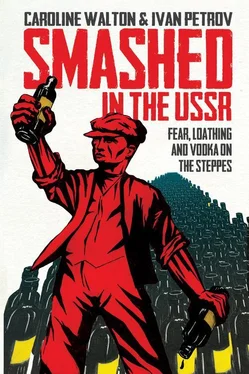
![Геннадий Марченко - Перезагрузка или Back in the Ussr. Книга 1. [СИ]](/books/53319/gennadij-marchenko-perezagruzka-ili-back-in-the-uss-thumb.webp)


